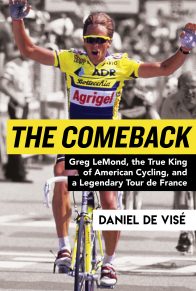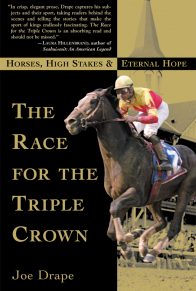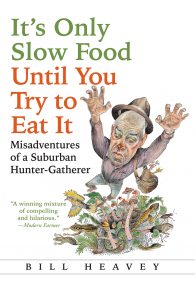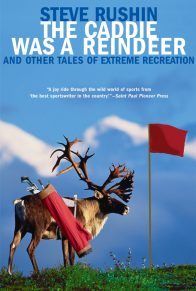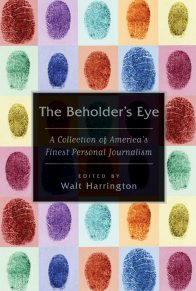“How long since you been shootin”?” Carl asked. “More than twenty years,” I answered. “Shot clay pigeons as a boy.”
“But you never hit nothin’ alive?” Alex asked, more to announce this to the other men than to get an answer he already knew.
“No, just walked the fencerows with my dad a few times,” I said. “Then we moved to town and my hunting days were over.”
“Well, you’ll be seein’ somethin’ today,” Bobby said confidently. “I’ll put my dogs up against any dogs in Barren County. You’ll kill rabbits today.”
At six in the morning, not even dawn yet, I was up and traipsing along through the dark, the damp, and the cold, no stars in the foggy sky, on a farm near rural Glasgow, Kentucky, where I was a reluctant guest in borrowed orange jacket and canvas overalls, red shotgun shells lining my vest. I thought that I looked silly.
But my father-in-law, Alex, had given me a new shotgun as a gift, and I was expected to shoot it. I lived in Washington, D.C., where most people I knew believed hunters were sick, violent men. That is a truly urban arrogance I had never held with conviction, having grown up in rural Illinois, where hunting came as naturally to men as commuting to work by then came to me. During my decades in the city, however, I had drifted toward the view that hunting was more or less archaic, a kind of cultural appendix. Without much thought, I had taken on the opinion that because hunting was no longer necessary to survive, men who persisted in doing it must be morally flawed. After all, they killed for fun, the brutes!
So I didn’t want to be spending my Thanksgiving stomping through briars and corn stubble in a chilling drizzle. You see, I was a big-time Washington journalist–a staff writer for The Washington Post–and I preferred my vacations boating, being pampered at some resort, lolling around the beach on North Carolina’s Outer Banks or the Delaware shore, driving the California coastline or hiking the national parks, taking in a show on Broadway or at the Kennedy Center for the Performing Arts, even knocking around bookstores. I’d rather have been back in the house watching an old Cary Grant movie than outside freezing my ass off, looking like some drugstore Rambo, listening to aging good old boys yak it up in a hick drawl I could barely decipher. But I didn’t want to offend my new father-in-law, either, seem like an effete city boy who imagined he was too good to get down with the menfolk. I believed then that all this was complicated by my wife, her father, and his hunting buddies being black. I was white, and I figured it was going to be my worry to fit in. I visited Kentucky during hunting season only five days a year at Thanksgiving, and I could play-act my way through this minor social obligation. Obviously, my attitude was condescending as hell. As I wandered out to the hunting-dog kennels with the men that first morning, I stuck my cold hands into the pockets of my borrowed hunting jacket, where I found something soft, pulled it out, and discovered a tuft of old rabbit fur, which I quickly dropped, shaking my hand as I did, wondering what kind of germs I’d already acquired.
‘don’t be afraid to shoot,” Alex said. “”Cause old Carl, he’ll just keep blastin”.”
“Oh, boy!” said Bobby, who was Alex’s brother and, it turned out, the keeper of the hunters’ tales. He then gleefully told about the time Carl emptied his shotgun at a fluttering covey of quail and missed clean, at least so said Bobby and Alex. Then when one of the beagles nabbed a quail on the ground nearby, Carl fell to his knees and wrestled the dog for it, hollering that he knew damned well he’d hit one of those birds. As we loaded the dogs, which smelled about as sickening as wet dogs can smell, onto the trucks, their claws frantically scraping the metal tailgate as they yipped and nipped at one another while being stuffed into homemade wooden cages, Alex glanced at Bobby, smiled, then chuckled. Bobby nodded for his brother to do the honors.
“You find a lotta shot in that quail, Carl?” Alex asked.
Their friend Carl, a big man with a wide, wry smile and an unlit nub of cigar in the corner of his mouth, smirked and sighed, and said, “You heard “bout the time out Roseville Road when Alex missed a rabbit comin” straight at “im with three shots and then tried to hit the rabbit with his gun as he run past? Coulda broke his gun.” It was Carl who laughed then, and his breath rose in the cold, brightening air as if he’d finally lit that cigar. The men’s other lifelong hunting buddy, Lewis, who often began his sentences with excited Gatling gun bursts, would tell me much later, “Ol”-ol”-ol” Carl, he didn’t find nothin” but teeth marks on that quail.”
To say the least, these men were strange to me. They seemed like anthropological relics, throwbacks to a dim, unenlightened time when men were rough and benighted. I thought of them as country characters from central casting, quaint and amusing. In their late fifties then, about twenty years older than I, they were laboring men without college educations. Alex had retired from the air force as a master sergeant and master mechanic. Bobby had retired from the army and then taken a factory job in his hometown making truck axles. Carl had worked at the local Texaco for a decade out of high school and then spent the next thirty years working on a factory loading dock. Lewis hauled freight long distance. The men were all raised in or near Glasgow, a deep country town with only a few thousand residents when the men were born in the 1930s. It sits about halfway between Louisville and Nashville in south-central Kentucky, not far from the famous Mammoth Cave National Park. Glasgow is a town of about 13,000 people today. Its quaint courthouse square is still kicking, although strip growth on the edge of town has brought McDonald’s, Taco Bell, KFC, and the rest. But outside Glasgow in surrounding Barren County–so named because the local Indians used to burn giant tracts of its land to create vast buffalo hunting meadowlands–farmers still harvest more tobacco and hay and raise more livestock than in any other Kentucky county. Carl and Lewis had spent their entire lives in Barren County, while Alex and Bobby had left for the military, traveled the world, and returned of their own free will. While my own male friends had come and gone, been serially abandoned as I moved around the country climbing the career ladder to land at The Washington Post, these men had remained friends for half a century. I knew only a little about them.
Alex was a lean, eccentric man who never hurried through anything and whose jeans always hung low on his skinny butt. His only vanity was a good toupee. A tinkerer, he kept an antique Model A Ford, an antique Coke machine, and an antique Seeburg jukebox in working order. That was okay. But the man also liked to eat baked groundhog and soused pig’s feet. He liked to get a bottle of bootleg moonshine when he could. And Bobby, well, he’d actually been a bootlegger in dry Barren County when he was young. With his profits he had hired a chauffeur to drive him around town–at age fifteen, Bobby wasn’t yet old enough to drive. He had grown up to be a short, round, bald man who never told a story the same way twice, although he told many stories more than twice. He read Louisville’s Courier-Journal and watched CNN, and he liked to show off his knowledge, something his friends joked about incessantly. Lewis was the coat-holder of the crew, the kind of man who liked to get other men arguing and then kindly offer to hold their coats while they fought. Lewis, the men said, would walk a mile to say something sarcastic about somebody. Carl, who turned out to be the best hunter of the bunch, was a soft-spoken bear of a man, thick all over–face, neck, chest, stomach, legs, arms, even his fingers. Not fat, but thick, like a bear. He was universally popular in Glasgow, a genuinely nice man.
Carl and Lewis smoked cheap cigars, and all of the men enjoyed a hard shot of whiskey, ate red meat, and laughed and laughed at one another’s foibles, flaws, and failings. All of them spoke in a lyrical, undulating drawl with skipped syllables and slurred words and without any respect for commas and periods. In their dialect, ellipses had become part of conversational usage, with one man often finishing another man’s sentence before it was done. When they all talked at once, which was often, it reminded me of an unfortunate time I had stood on a Cairo street corner listening to two Egyptian taxi drivers argue about who had run into whom.
That first morning, I climbed into Carl’s pickup truck and we drove maybe five minutes, pulled off the narrow macadam road, and juddered along a gravel drive to an old unpainted barn in which yellow stalks of tobacco hung drying. We parked and, as the men went about releasing the dogs and getting their shotguns from the beds of their trucks, I surveyed the landscape, which was beautiful. In one direction–I had then no idea which–the clouds were billowing, as if flexing for a muscular storm. In another, a small pond sat as dark and smooth as a smoked-glass tabletop. In another, a tall forest rose high into a translucent gray sky. In still another direction, a field of weeds rolled away in compound inclinations. We each clicked three shells into our guns and, in what had become a rainy mist that looked to be falling upward with the gentle wind, spread out abreast and walked through the rolling field. We walked a long time before the dogs scared up a cottontail rabbit where the weeds met a patch of young trees. The rabbit raced along the edge of the wood at what seemed to me an awfully fast speed. I fired and missed. Bobby didn’t miss.
“I think you winged “im,” Bobby said in an attempt at politeness.
Not a chance. We hunted for a couple more hours and the men each shot two or three rabbits. I missed and missed and missed, and I didn’t care. I was cold, wet, and tired. Getting back in the house and away from these men was my only ambition. But late that morning, back near the dog kennels behind Bobby’s house as we were thankfully getting ready to call it a morning, a rabbit jumped up and ran away from me in an open field. I fired three errant shots before the rabbit reached the cover of a four-foot-high pile of cedar logs. Instantly, the dogs were atop the pile, howling mad, frantic, digging into it from all sides with their paws and snouts, creating a frenzy that rubbed off on me in the way that a bellowing crowd at a Washington Redskins game would rub off on me. Carl put his shotgun aside, climbed atop the pile of logs, and began tossing them away like so many twigs. “I can see “im! I can see “im!” he shouted, as he drew the .22-caliber pistol holstered on his belt and aimed into the pile. ‘should I shoot “im? Or let Walt shoot “im?” That was a true test of Carl’s country manners.
It was an odd moment for me. I had thought hunters were brutes. Yet there I was, reloading my gun, striding toward the cedar logs, feeling, quite frankly, on fire, feeling an intriguing brew of exhilaration and guilt. It had begun to rain harder. I didn’t care. I took up a spot at a corner of the woodpile and, for a moment, through the wild howling of the dogs, thought about how that rabbit was so little, about his heart pounding, the four men with firepower, Carl burning to blast him, me ready to do the same. For a flash, it all felt wrong. Then the rabbit made a break. He leapt from the woodpile my way, but Old Red, the best of the men’s dogs then, grabbed him in his teeth on the fly, which was so stunning an athletic feat that an image of it has remained clear to me ever since. The other dogs were on the rabbit with Old Red that quick, and I couldn’t risk a shot. Suddenly, another rabbit broke unexpectedly from the woodpile. I whirled, lowered my gun, and fired. At thirty yards, he dropped. Instantaneously, the dogs, in a bellowing blur, were racing toward the dead rabbit. The abandoned rabbit stumbled, dazed from the dogs’ attack. I pumped a new shell into my shotgun’s chamber, fired, and killed that rabbit, too.
“I got him!” I shouted, surprising myself at the purity of my exuberance.
At that moment, my life changed, although I didn’t know it yet. It would be another year before I understood that I should have been using not a full-bore choke in my shotgun barrel that day but rather a modified choke that creates a wider pellet pattern to give me a better chance of hitting my prey. It would be several years before I learned to abandon the lighter Number 7.5 pellet shotgun shells for Number 6 shells with more killing power. It would be at least five years before I could do what Alex, Bobby, Lewis, and Carl could do routinely–let a rabbit they’ve flushed get out twenty-five yards before pointing their shotstrings just in front of the bounding animal so that the pellets hit its head and foreparts at the shot pattern’s edge, leaving the rabbit’s meaty hindquarters undamaged for eating. Most important, it would be nearly a decade before I would realize the honor of entree the men had offered me that day, and I would begin to record their story, which by then had become my story. I sometimes wonder how my life would be different today if that rabbit hadn’t scampered into that pile of cedar logs, if Carl hadn’t resisted his temptation to shoot his pistol, if I hadn’t met Alex, Bobby, Lewis, and Carl.
But all that was ahead of me. On the first morning, there was much merriment for a while, talk of my good shots. I tried to stay cool, act as if I’d done this before, but my adrenaline was pumping. By local tradition, I had earned two slugs of whiskey. When we were back at the barn and our guns unloaded, I knocked back the hits of bourbon, a hot knot exploding in my chest with each shot. Naturally, I had no idea how to clean a rabbit. So I watched the men for a few minutes and, no longer worrying about the germs I might acquire, began for the first time the maneuvers I would carry out again and again in the coming years. I submerged the first of my dead rabbits in a bucket of icy water so its fur would not come off in my hands, twisted off its head, and peeled off its skin. The cold water and the wind that had picked up by then made my hands numb. When I sliced open the rabbit’s belly to sweep out its heart and lungs and bowels, I remembered that this rabbit had been alive only minutes earlier. Its innards warmed my freezing hands.
I gagged at the stench and turned my head to clear my nostrils so I wouldn’t vomit. Nobody noticed; at least, nobody said anything. I moved through the cutting and gutting in the way that I would move for the first time through a set of complicated computer instructions or the steps of a new dance routine: the discrete actions just didn’t make a whole. The rabbit’s skinned carcass felt slick and satiny in my left hand. In my right hand, its mass of gleaming sacs and snaking tubes felt like the spaghetti you blindly bury your hands in at the Halloween fright house. The men all talked at me at once, enjoying the chance to be mother superiors to a novitiate. They poked bloody fingers toward my rabbit, telling me to do this or not do that with this or that organ. I quickly forgot the specifics. When I finished, the back of my right hand, the gutting hand, was bloody to my fist knuckles and the palm was bloody to my wrist. It was gruesome. I got through it by mimicking the resignation I feel while taking an invasive doctor’s exam.
The men’s dutiful praise for my shooting wore off quickly, and the story of my kills began to sound like Alex, Bobby, Lewis, and Carl talking about one another–how ridiculous I looked all tensed up before I shot, how I was running mindlessly in place without even knowing it.
“And by the way,” Alex asked, “how many shells you fire to get those two rabbits?”
“Hmm,” I said, counting the empty shell pockets in my vest. ‘seven, eight, ah, nine.”
“You’ll get better,” Bobby said in another effort at politeness.
“Not with that blind eye,” Alex said.
Everyone laughed and the polite moment passed.
Back at my father-in-law’s house, I soaked my rabbit carcasses in salted water and vinegar to draw out the coagulated blood, sliced out shot pellets trapped under the skin, cut off and discarded shattered bones. When the rabbits were finally done, ready for the freezer, they were clean and neat as chickens from the Safeway. I took my rabbits and a few more from Alex’s freezer back home with me to Washington, D.C. The next weekend I threw a rabbit feast, cooked them up in wine sauce, marjoram, oregano, and snipped parsley, lit candles, and sat down at the table with some of my truly urban friends. Then, when they were enjoying their meal, I told them the story of where the meat on their plates had come from. They grimaced and groaned.
“I can’t believe you killed those little bunnies,” said a woman I had never liked much.
“But I did,” I told her. “And I think I’m going to kill some more.”
Excerpted from The Everlasting Stream: A True Story of Rabbits, Guns, Friendship, and Family
” Copyright 2002 by Walt Harrington. Reprinted with permission from Grove Atlantic, Inc. All rights reserved.





